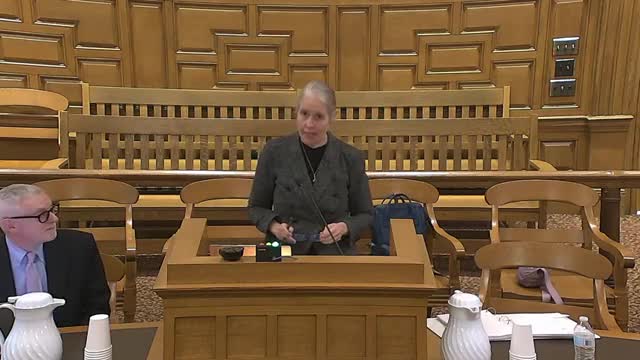Appeals court hears dispute over landlord identity, standing and broad waiver language in dismissal order
October 10, 2025 | Judicial - Appeals Court Oral Arguments, Judicial, Massachusetts
This article was created by AI summarizing key points discussed. AI makes mistakes, so for full details and context, please refer to the video of the full meeting. Please report any errors so we can fix them. Report an error »

The Appeals Court heard oral argument Oct. 10 in Chelmsford Woods Residences v. Melendez, a housing dispute that the panel described as “anomalous” because it involved a contested standing argument, a pro se tenant who later retained counsel and an agreed dismissal that the tenant contends improperly precludes later claims.
Appellant counsel Dara Sandow argued the original summary‑process pleadings and notice to quit named “Chelmsford Woods Residences 2 LP” while title documents and subsequent filings showed different corporate names and ownership structures; Sandow said the mismatch raised standing and ownership questions that were material to the merits and should have been resolved before dismissal. Sandow also told the court that she had sought an evidentiary hearing on multiple procedural issues—including service, deeded ownership and eligibility rules tied to tax‑credit and public‑housing programs—and that the final stipulated dismissal, entered after adjudication, included additional language barring abuse‑of‑process claims.
Counsel for the property owner and housing authority described the tenant’s objections as waived or moot and said the parties sought dismissal with prejudice to resolve multiple cases and avoid relitigation. The landlord’s lawyer said the judge appropriately signed an order dismissing the action with prejudice and that the limited, handwritten language cited by the tenant did not create a blanket prohibition on future claims.
At issue are procedural fairness, whether the tenant’s rights to raise counterclaims or distinct civil claims were curtailed by the post‑trial dismissal language, and whether the tenant may later bring an abuse‑of‑process or malicious‑prosecution claim tied to alleged misidentification of the landlord and errors in the underlying proceedings.
The court asked about the sequence of filings, when the tenant first raised the standing issue, and whether the record before the trial judge contained deed or title evidence. The panel took the matter under advisement.
Appellant counsel Dara Sandow argued the original summary‑process pleadings and notice to quit named “Chelmsford Woods Residences 2 LP” while title documents and subsequent filings showed different corporate names and ownership structures; Sandow said the mismatch raised standing and ownership questions that were material to the merits and should have been resolved before dismissal. Sandow also told the court that she had sought an evidentiary hearing on multiple procedural issues—including service, deeded ownership and eligibility rules tied to tax‑credit and public‑housing programs—and that the final stipulated dismissal, entered after adjudication, included additional language barring abuse‑of‑process claims.
Counsel for the property owner and housing authority described the tenant’s objections as waived or moot and said the parties sought dismissal with prejudice to resolve multiple cases and avoid relitigation. The landlord’s lawyer said the judge appropriately signed an order dismissing the action with prejudice and that the limited, handwritten language cited by the tenant did not create a blanket prohibition on future claims.
At issue are procedural fairness, whether the tenant’s rights to raise counterclaims or distinct civil claims were curtailed by the post‑trial dismissal language, and whether the tenant may later bring an abuse‑of‑process or malicious‑prosecution claim tied to alleged misidentification of the landlord and errors in the underlying proceedings.
The court asked about the sequence of filings, when the tenant first raised the standing issue, and whether the record before the trial judge contained deed or title evidence. The panel took the matter under advisement.
View full meeting
This article is based on a recent meeting—watch the full video and explore the complete transcript for deeper insights into the discussion.
View full meeting
